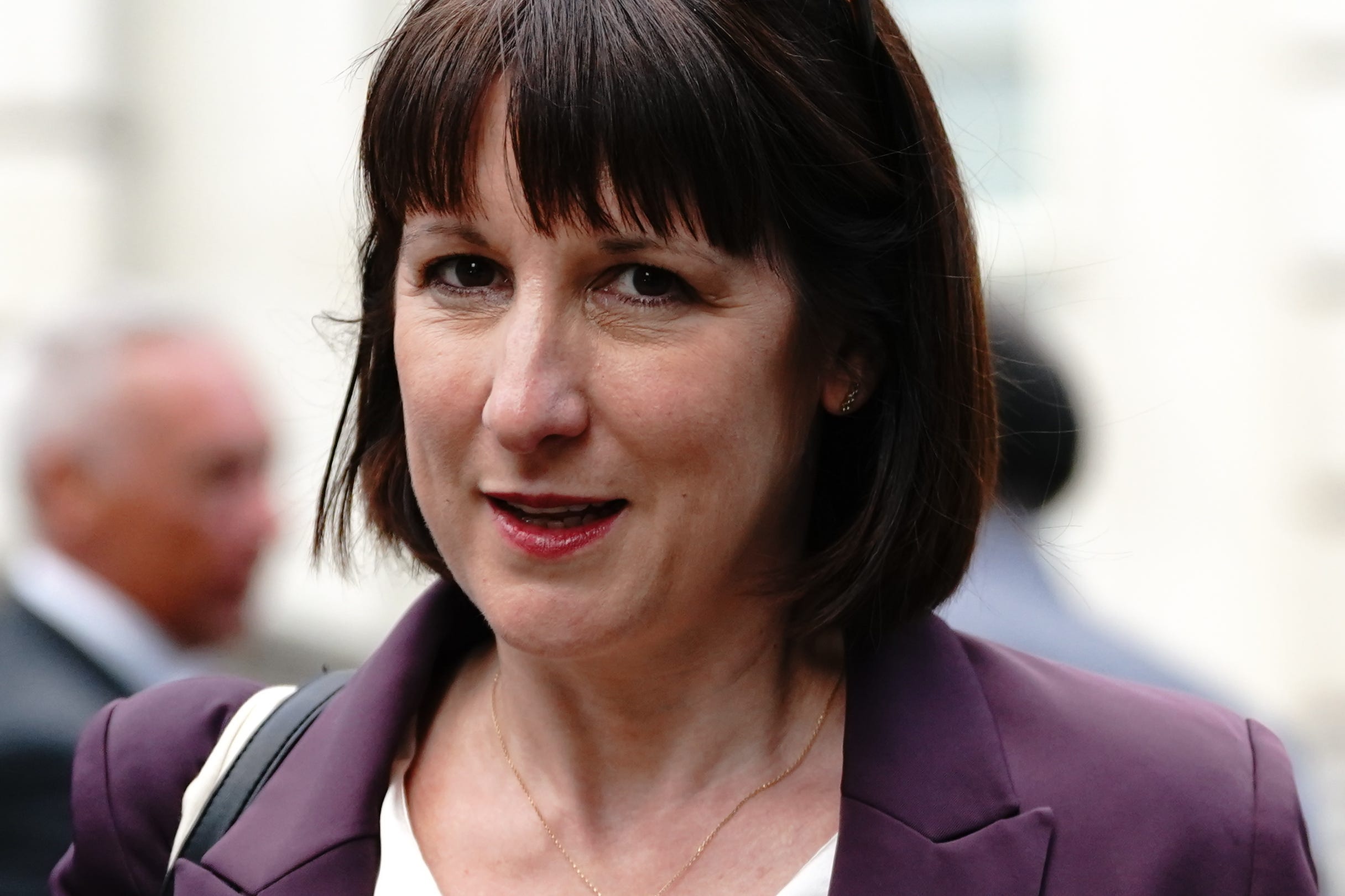Why Rachel Reeves’s double-non-denial denial on tax is asking for trouble
The shadow chancellor could not be clearer: there will be no wealth tax under Labour. Or any new tax rises at all. No wonder so many of the Left’s right-wingers are reeling, writes John Rentoul


Rachel Reeves has finally succeeded in provoking a backlash. She and Keir Starmer have moved so sharply from neo-Corbynism to ultra-Blairism that even many Labour right-wingers are feeling dizzy.
The shadow chancellor gave an interview to The Sunday Telegraph at the weekend that outdid Gordon Brown for prudence. “We have no plans for a wealth tax,” she said. “We don’t have any plans to increase taxes outside of what we’ve said.”
When Edward Malnick, her interviewer, challenged her, pointing out that “no plans” was a typical non-denial denial, she said: “We won’t be doing that. It’s a denial. It’s not a non-denial, it’s just a denial.”
So that is clear: Labour will not raise any taxes, except for the plans already announced to put VAT on school fees, abolish non-dom status and close a “loophole” that no one understands in the taxation of private equity funds. And she buttressed her refusal to raise taxes by saying: “The tax burden is at its highest in 60, maybe even 70 years ... I don’t see a route towards having more money for public services that is through taxing our way there.”
She has said similar things before, but this is hardcore. And it has finally produced a response. So far, most of the Labour Party and the wider left has been subdued, transfixed by 20-point opinion-poll leads and willing to tolerate any betrayal as the price of getting into government. I am reminded of the late Tony Banks, stalwart of the Socialist Campaign Group of MPs, summing up the mood of the party in the run-up to the 1997 election: “They would accept that the Moon was made of blue cheese if they thought it would help them win.”
There were a few cheese-sceptics then, and there are still some now. As The Independent reported yesterday, a group of 70 academics has snapped. They have written a letter to Starmer complaining that sticking to Conservative public spending plans “will only serve to deepen the poverty and hardship many are already facing”.
Professors Ruth Lister, Kate Pickett and Richard Wilkinson and their co-signatories are unspecific about the alternative economic model that they think Starmer and Reeves should embrace. But it seems to involve spending, borrowing and taxing more. Of which only the last – raising taxes – is a good idea. My view is that whoever wins the next election will have to put up taxes simply to maintain public services at a decent level. Neither main party will admit that Jeremy Hunt’s spending plans, to which Reeves has tied herself, are unsustainable.
But promising to raise taxes is something that Labour can do only in exceptional circumstances – Corbyn nearly won on such a pledge in 2017, but only because Theresa May was proposing an even more unpopular tax of her own, on dementia.
So Reeves, who wants to win, says no. Just for good measure, The Sunday Telegraph quoted a Labour “source” who said that Reeves’s denial of plans for a wealth tax applied to “any form of ‘mansion tax’”.
Some of us Blairites are in favour of a mansion tax. We tend not to like a simple wealth tax, because it doesn’t work. Capital is mobile and can be moved elsewhere. The French wealth tax, for example, was abandoned five years ago and replaced by a tax on real estate.
Even George Osborne was in favour of a mansion tax – although he was blocked by David Cameron, who said “our donors would never put up with it”. Properties, especially the more expensive homes, are too lightly taxed in this country, and cannot be moved abroad. But doing something about it is fraught with political risk.
If Labour, for example, proposed a mansion tax on houses worth more than £1m, it wouldn’t raise a huge amount of money, and people owning an average £300,000 house would fear that it would soon apply to them.
You would expect Reeves to adopt something like the Gordon Brown approach: in 1997 he promised “no rise in income tax rates” and then changed the tax rules for pension funds, which raised substantial sums by stealth.
Which is why the wording of Reeves’s “denial” was surprising. Apart from a slight wavering on the idea of a “frequent-flyer levy” – she said she was “not instinctively in favour” – and the three small tax rises she has already set out, she set herself absolutely against any increase in taxes at all.
You can see why she has to say it. Anything less categorical would be interpreted as preparing for a Brown-style stealth tax. She is right to rule out a wealth tax, including a mansion tax, on practical grounds, but any tax increases at all? Maybe it is just politics, and she will go back on it once in government. But that seems like a bad idea, and asking for trouble.






Join our commenting forum
Join thought-provoking conversations, follow other Independent readers and see their replies
Comments